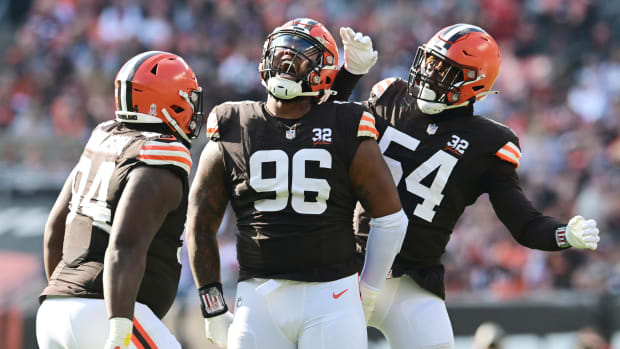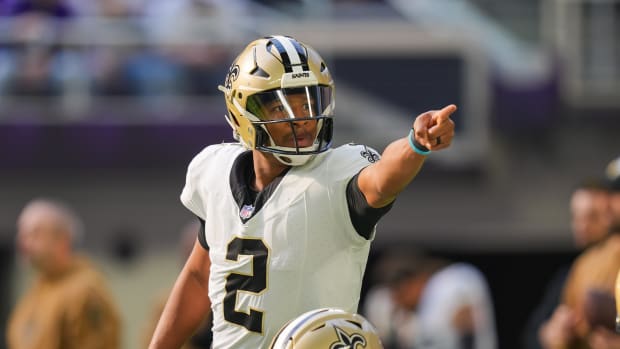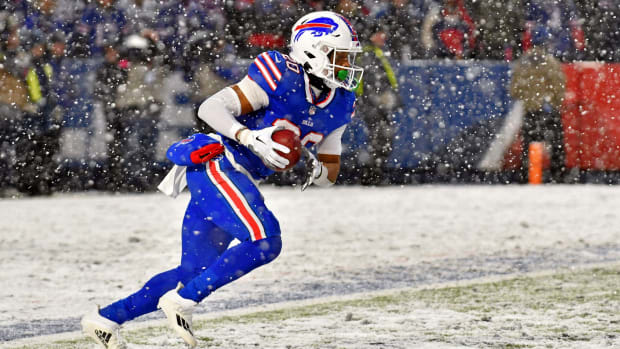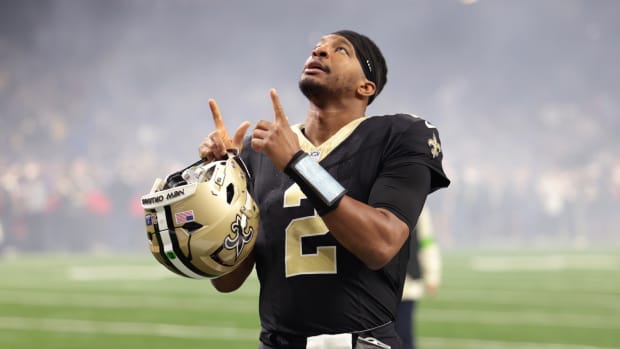GMs Want NFL Draft Pushed Back: Exploring Why, Who Stands to Lose, Impact on the Cleveland Browns
According to Adam Schefter and Dianna Russini of ESPN, a subcommittee of general managers met with NFL commissioner Roger Goodell, urging him to move the NFL Draft back from its planned date of April 23rd to the 25th. Goodell is standing pat, saying the event will take place as scheduled. There are some meaningful arguments to why the draft should be pushed back as it applies to draft prospects. The problem is there's really no time to do it because those issues likely don't change in May or June. Arguments relating to logistics being a problem are the epitome of first world problems.
The realities of COVID-19 and what it's preventing both prospects and teams from doing have to be incredibly frustrating for players chasing their lifelong dreams. Some prospects won't be impacted at all, particularly from bigger schools that have been getting national attention for years and participated in the NFL Scouting Combine.
The players that are going to be most impacted played at smaller colleges. Teams have access to their tape and a few were able to participate in All-Star games, but teams are less likely to select them if they can't see them in person. There's that affirming element of seeing them up close, being able to really get that sense that they are equipped not only to survive in the NFL, but help their teams. And that may cause some teams to shy away from them.
Another group of players that could be adversely impacted this year are players that were injured during the draft process. Some of them, like Prince Tega Wanogho of Auburn haven't tested, planning on a late pro day, and it's not clear how teams are getting medical information to feel comfortable about their recovery and their longterm health. The combine medical recheck being cancelled is a big deal, because teams weren't able to have players come in for visits and have their own doctors evaluate them. Unless there have been some really creative solutions to get around this, players in this group, could stand to lose potentially millions of dollars.
And these are legitimate reasons teams would want the draft pushed back. The problem is it's almost impossible to imagine that the landscape changes by May or even June. The NFL, to this point, has been extremely resistant to at least publicly admit their season may be impacted. So from Goodell's point of view, teams need to draft their players, so the league can operate as if everything is going as planned.
Teams might be less resistant to the idea of having the draft in April if they were confident they could get these players in minicamp in May and June. Currently, that seems like a pipe dream. So, if teams aren't going to get their hands on players basically until July, there's no rush for them to draft them. They'd rather delay as long as possible, in hopes of getting more information, since they can't do anything with those players anyway.
Obviously, everyone would hope that players are smart, responsible, doing what they need to do, training to play in the NFL, staying healthy and avoiding anything that might get them in trouble as well as the randomness of life that can happen. Potentially drafting players at the end of April and then not being able to do much of anything with them until July is a terrifying prospect for teams. What if their top pick or any pick gets injured, contracts COVID-19 or were to get into legal trouble while the league is in limbo and they've never even gotten them to the team facility? Teams are powerless in a situation where they'd like to have the most control.
Most of the logistical complaints, not having access to the team facility, their offices are pretty desperate arguments. There's not a team in the NFL that can't effectively adapt to those challenges to be able to operate the draft effectively in April. They all have the resources. It's just a matter of implementing them. And those challenges, once again, likely don't disappear in May or June.
The other argument that doesn't wash is the idea that it looks bad. This was an argument against starting the league year on time, suggesting that NFL free agency would be unpopular because of everything going on with the pandemic. That outcry never came and NFL free agency has a welcome distraction for most people, giving them a sense of normalcy, as sports often does. Unlike most years, where the NCAA tournament is going on with the NBA and NHL deep in their regular season, the NFL received all the attention. Having the draft in April, even if it's conducted entirely by teleconference, will be incredibly popular.
There are real challenges NFL teams will have in preparation for the draft, getting the necessary information on prospects. That's the argument for delay, both for the teams as well as the players. And even that facet to this year's draft is interesting as there are likely going to be fascinating stories about how teams or prospects found creative ways to get the information on players they needed to go ahead and select them.
It will be interesting to see which teams are the most equipped to adapt to this new reality and be effective in the draft. In that sense, it could be a throwback draft where teams like the Pittsburgh Steelers are combing through HBCUs and smaller colleges to come up with outstanding players like Joe Greene out of North Texas, cleaning up in the draft and building a dynasty.
There may be teams that are focused on completely different pools of players this year, because unlike in years past, they can't track where team scouts are going. Pro days at colleges record which teams are coming to visit them, often publicizing them because it makes the program look good. It often provides insight into what players teams are looking at because they have a scout there live, looking at them. This year adds a fog of war element in the draft, where teams have a far easier time hiding their footsteps, making it more difficult to figure out which prospects they might be investigating.
After round two, maybe round three this year, teams are going to have little, if any indication of how teams are going to operate. Teams do their own mock drafts to try to prepare contingencies and in the first round, teams are still likely going to have a pretty good idea of what everyone is doing. After that, it's going to be incredibly difficult to predict the direction of teams, who they like and where they are spending most of their time.
Enter the Cleveland Browns, who become incredibly interesting specifically in this framework. Andrew Berry is the youngest general manager in the league. Kevin Stefanski is one of the youngest head coaches in the league. They might be the most equipped to deal with this from a technological standpoint, because so many of the ways teams can connect with coworkers and potential draft prospects, they have grown up using.
The limits are largely up to ownership and what they're willing to invest. For all of the criticisms that are lobbied at the Haslams for different ways they've interfered or held the team back, their willingness to modernize and have the Browns compete hasn't been one of them.
None of this guarantees the Browns will draft better than everyone else, but they at least seem to be equipped to handle the situation. The lack of continuity, the fact they are in their first year and they may not have the depth of a relationship with their scouting department as other teams could be a slight disadvantage.
Compare that to a team within the division in the Cincinnati Bengals. Often mocked for having such a small scouting department and Mike Brown being cheap as an owner, they might be at a massive disadvantage in this environment, potentially being ill equipped to adjust on the fly. Unfortunately a team like the Baltimore Ravens will likely be as good as any in terms of being able to adapt and excel, despite the challenges this climate presents.
There's no good time to hold the NFL Draft in the current environment. And some players who have been spending so much of their lives chasing after this dream are going to get pinched, lose a significant amount of money and that's not only disappointing, but simply unfair. The problem is there's no real way to make them whole again. It's simply an unfortunate side effect of the pandemic, which is impacting everyone.




